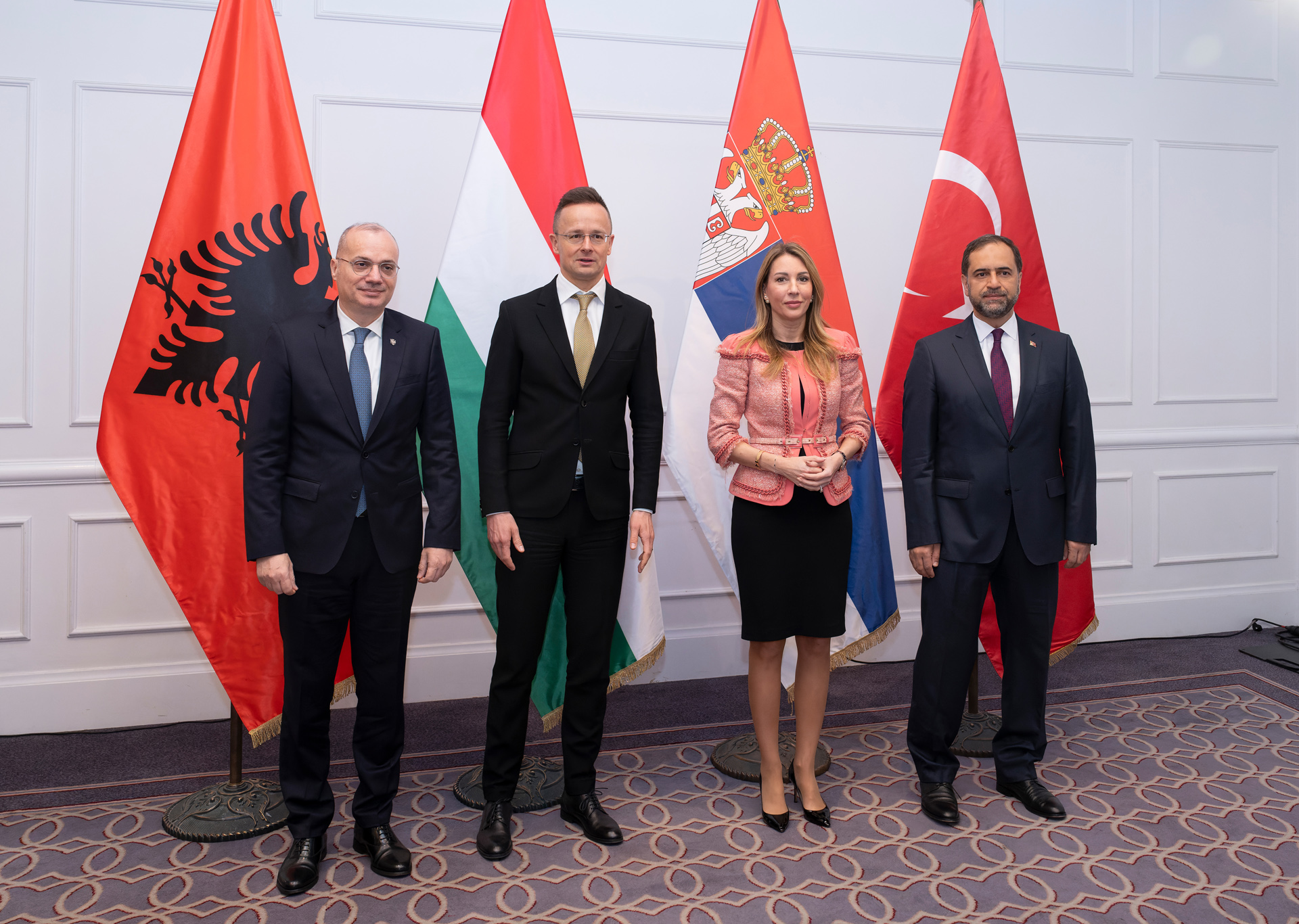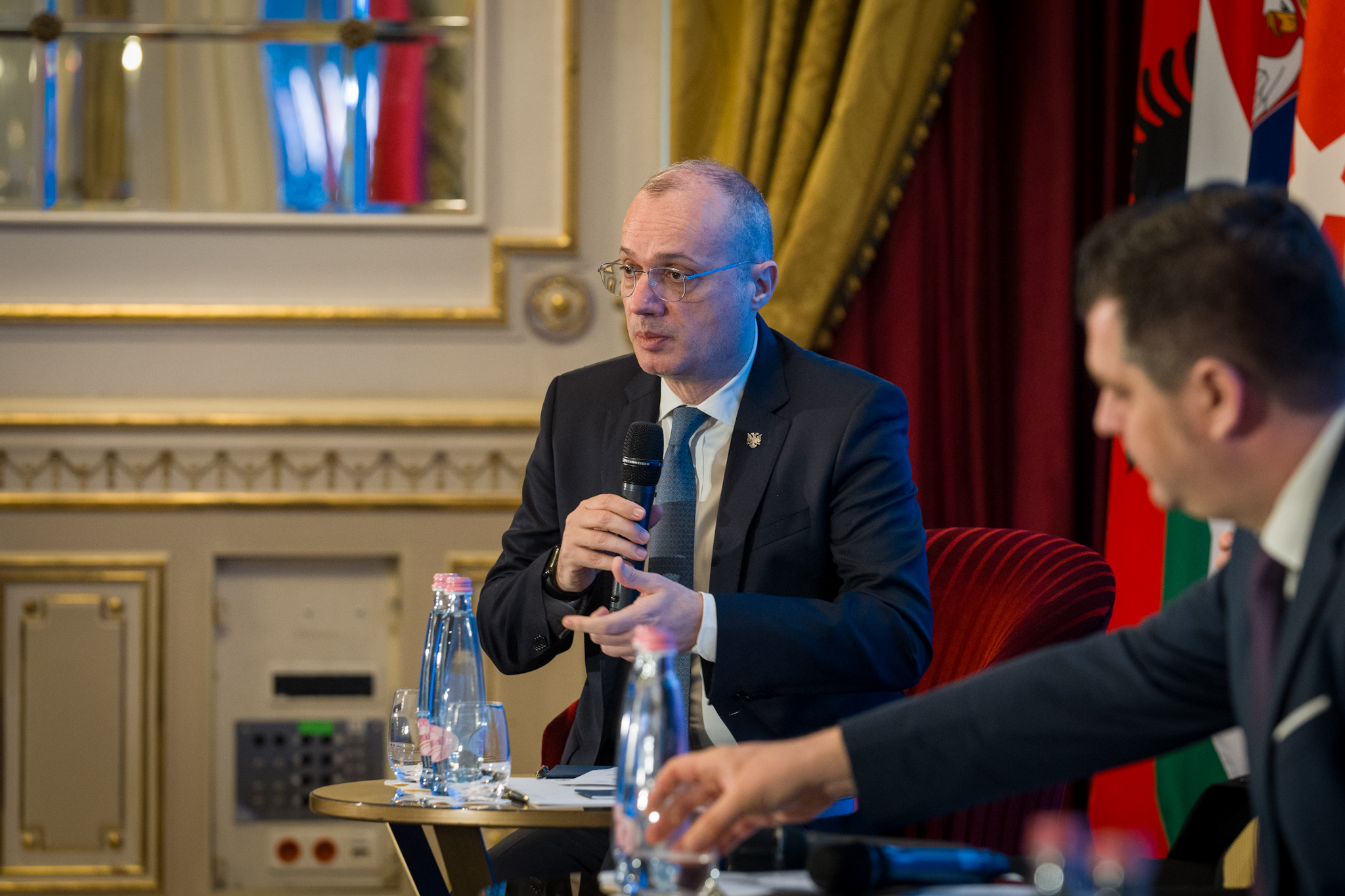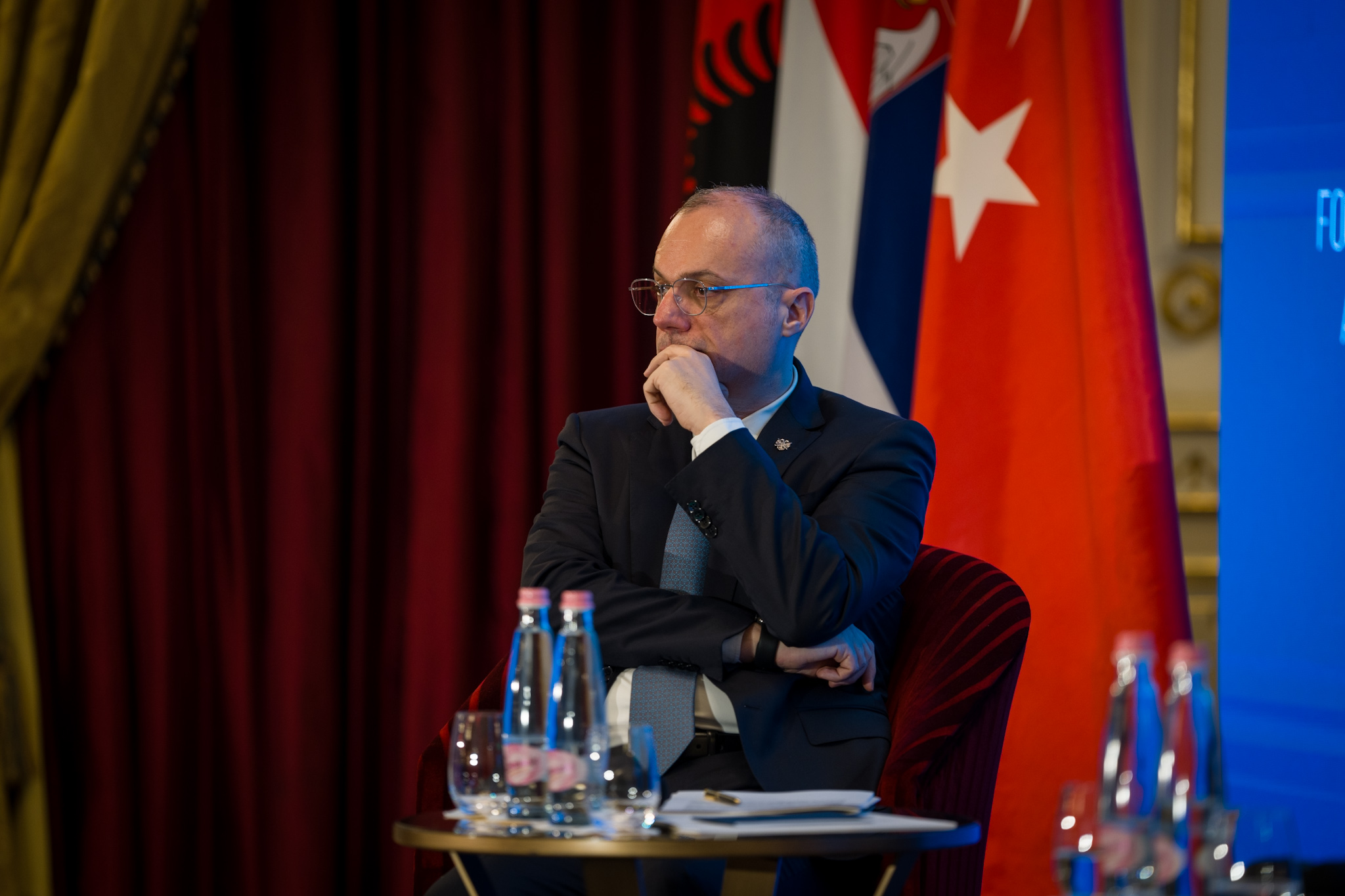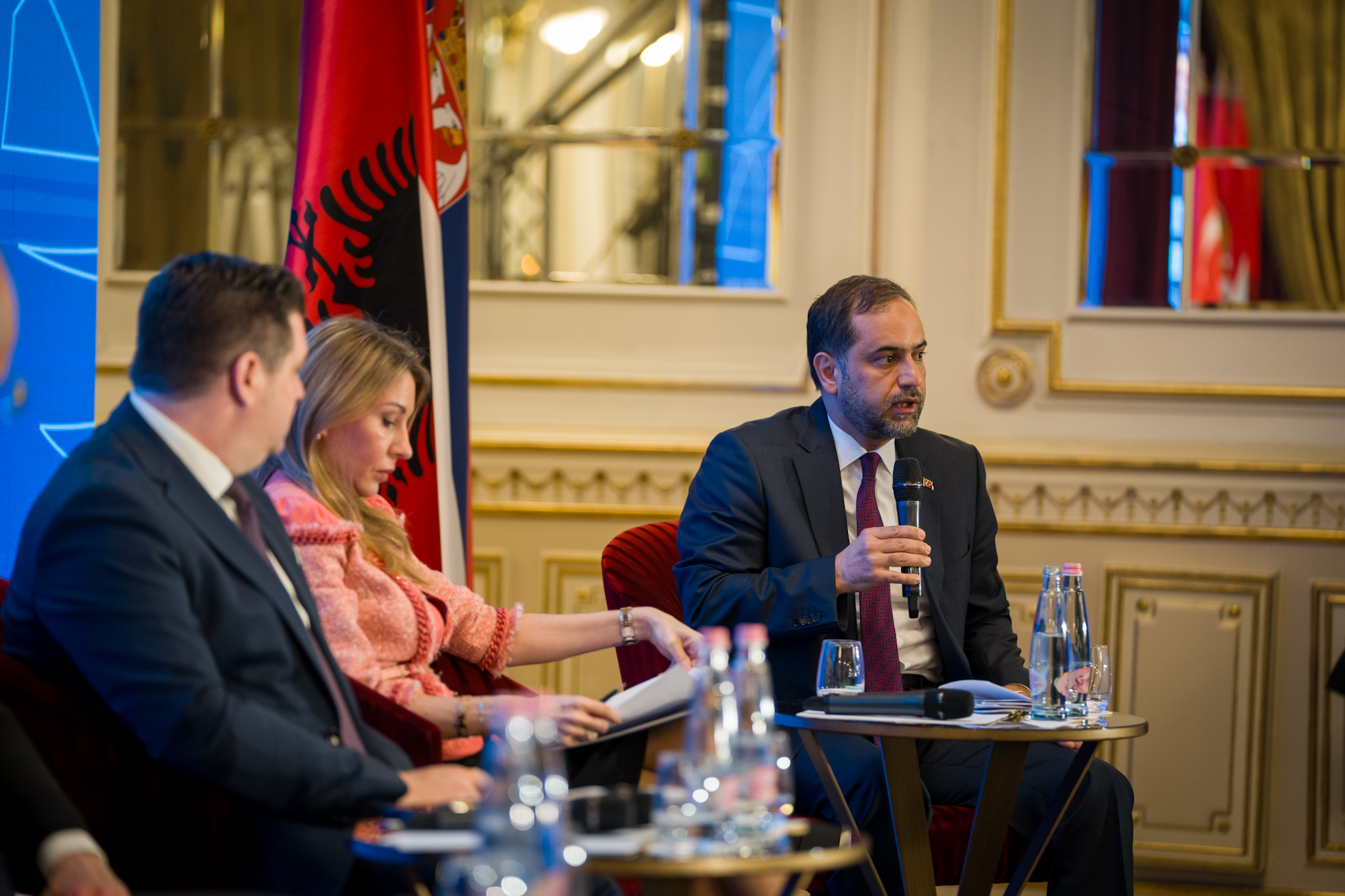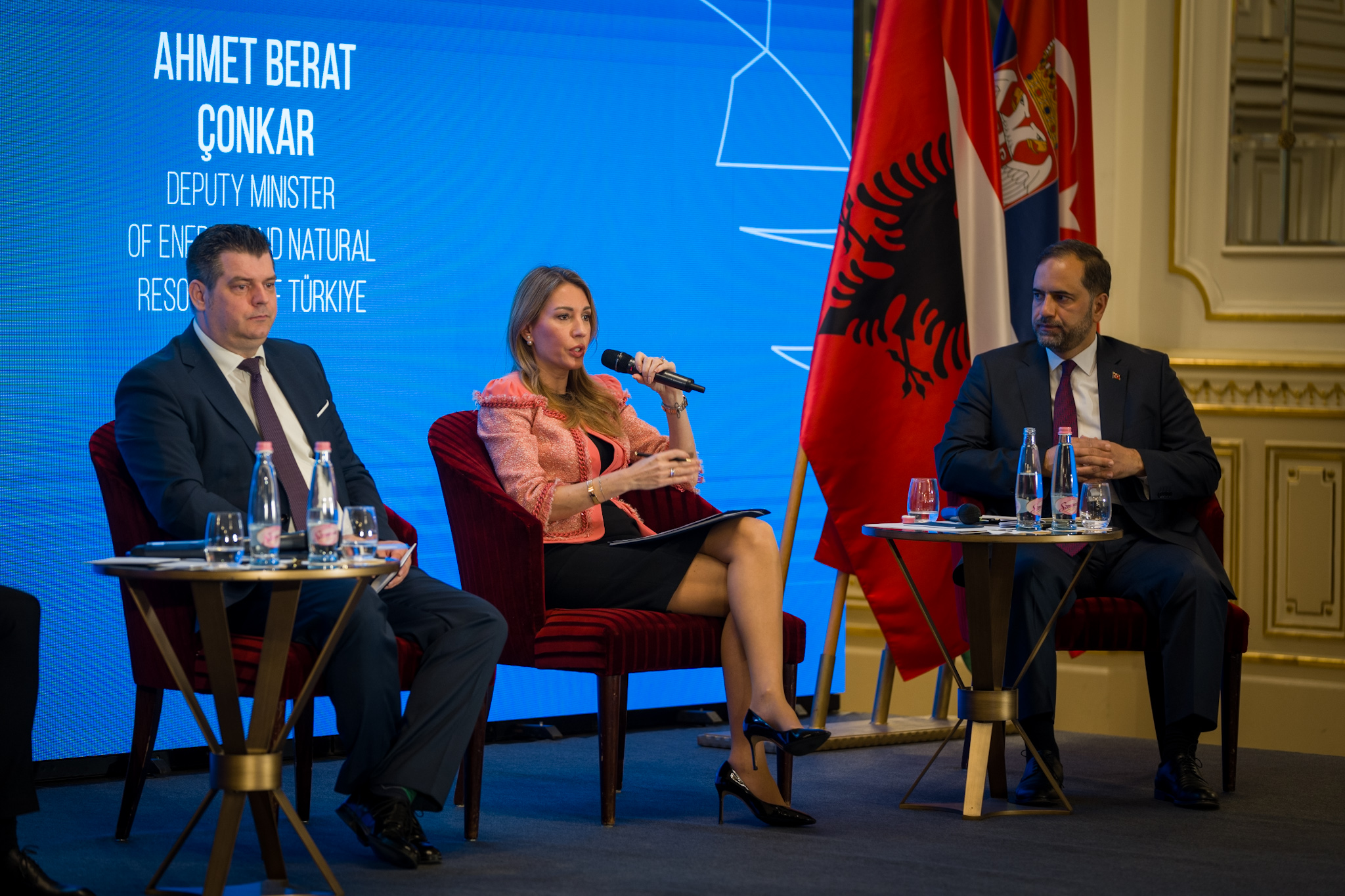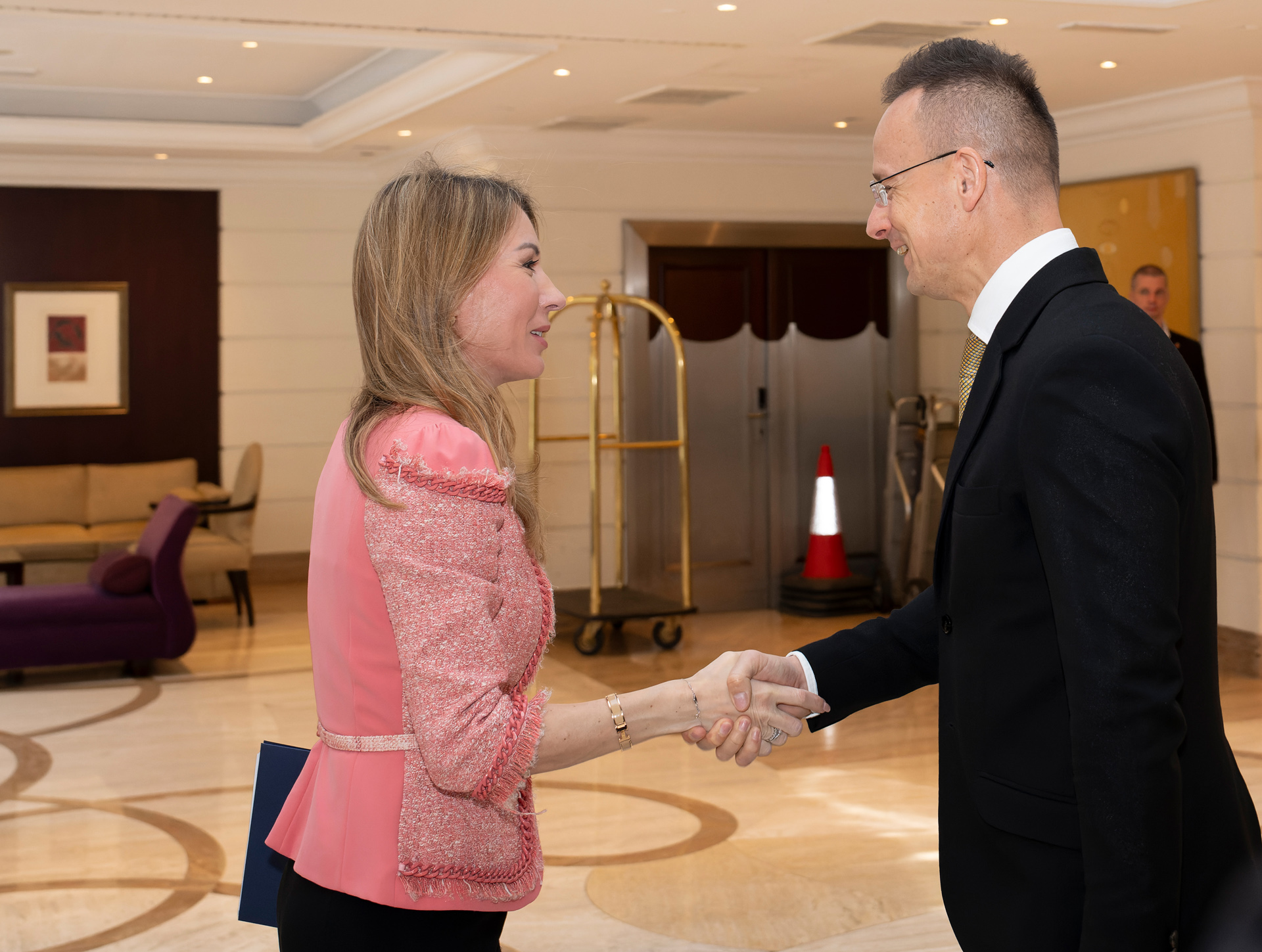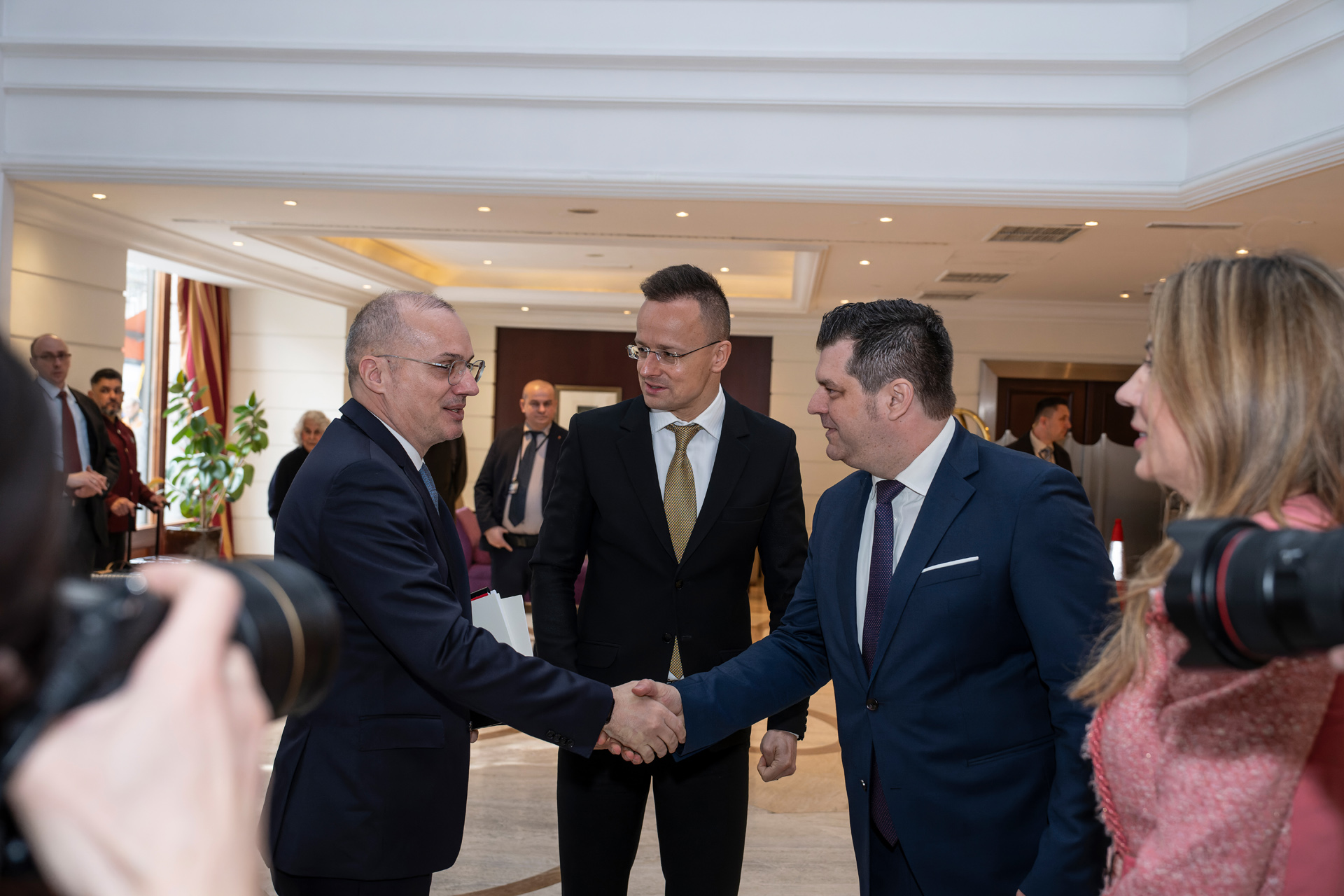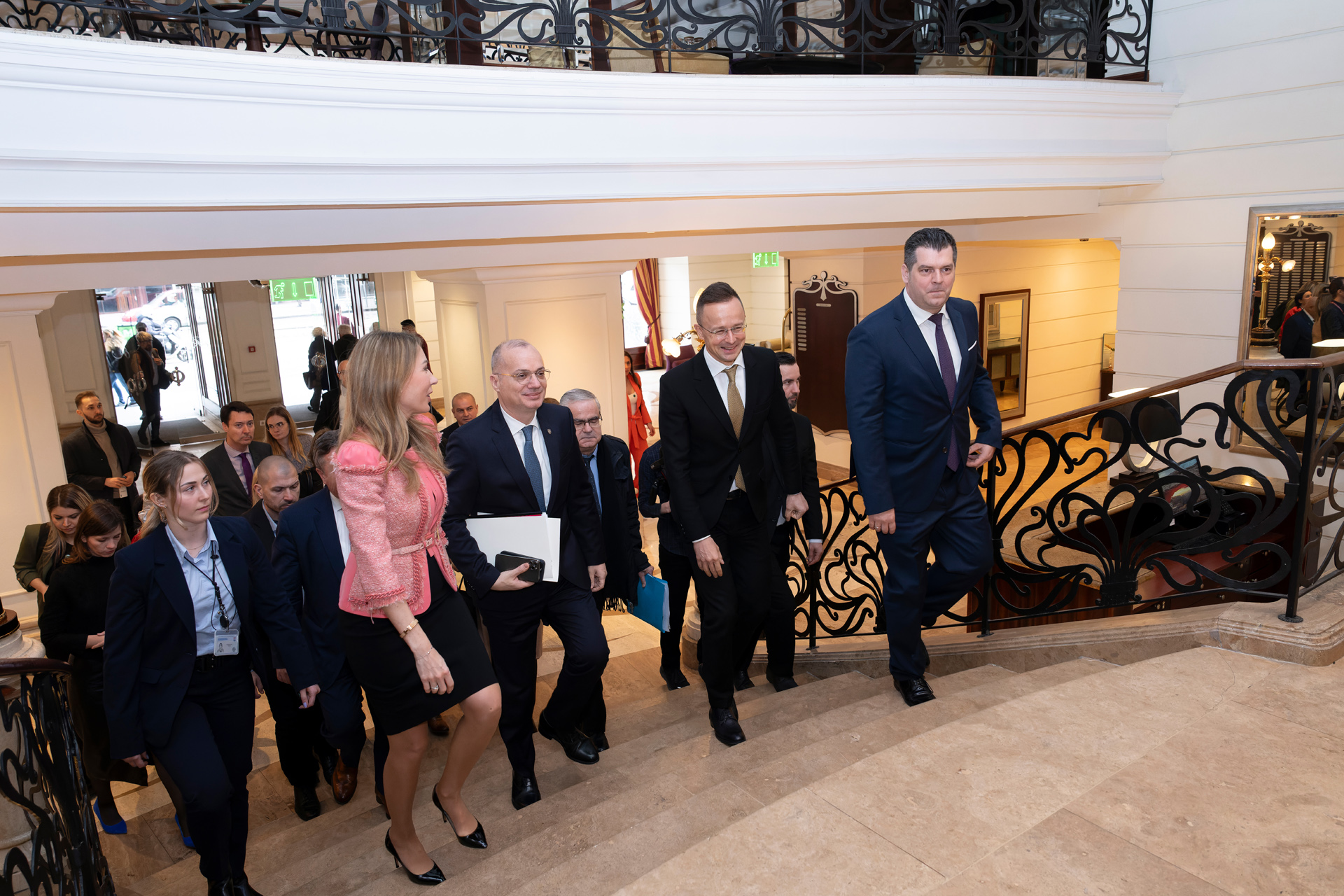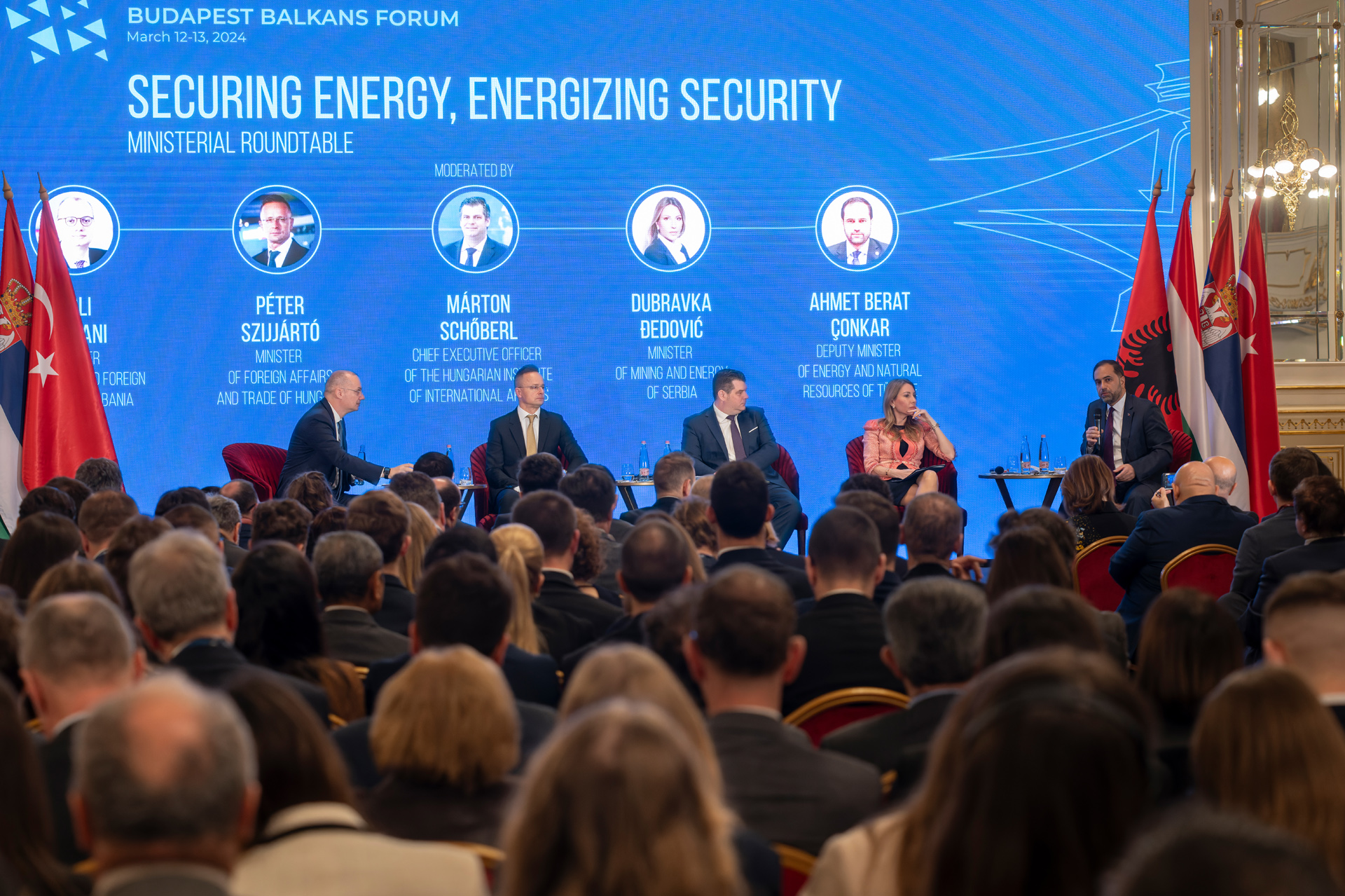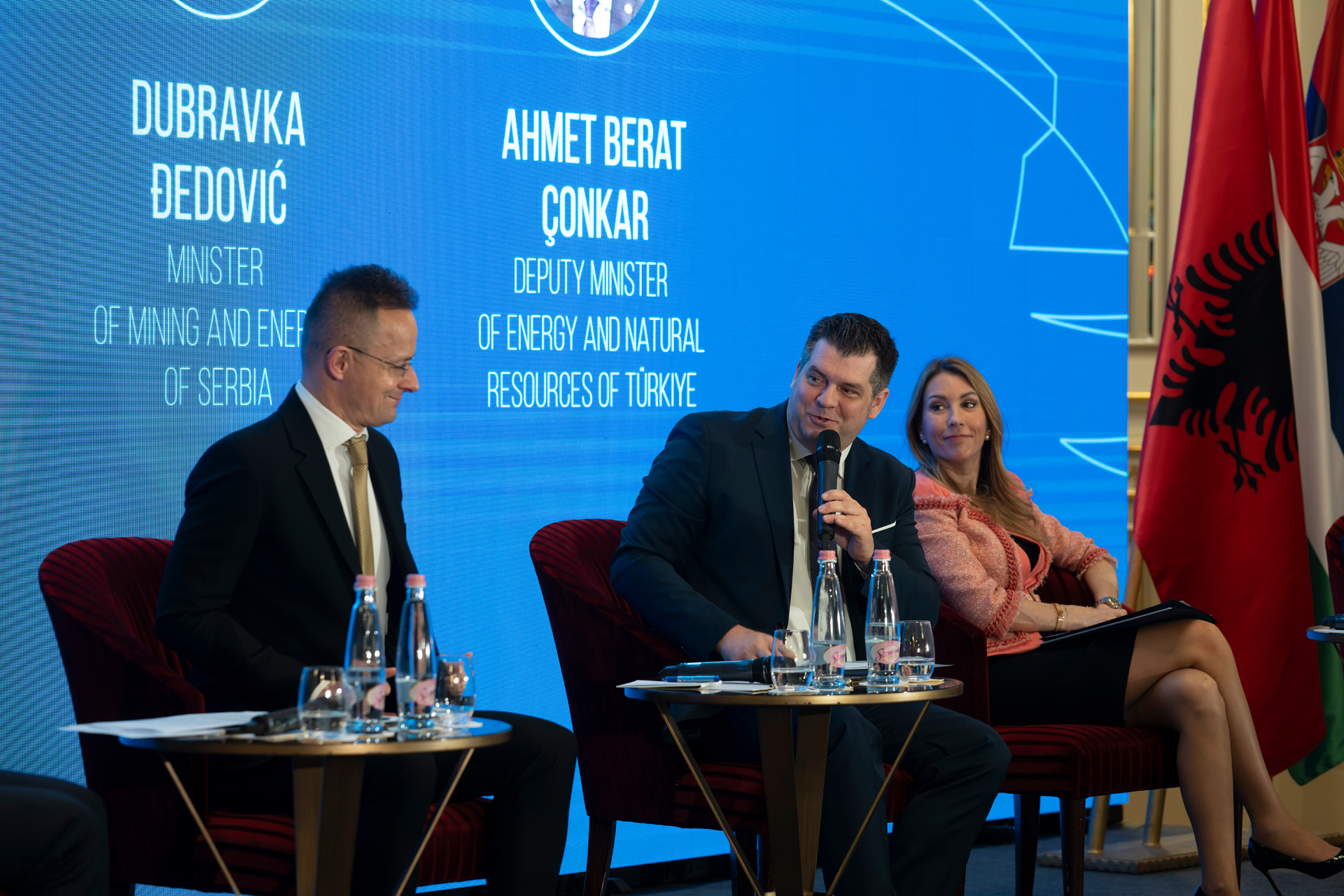In the ministerial panel entitled, ‘Securing energy, Energizing security’ the ministers in charge of foreign affairs of Hungary and Albania, and the minister and deputy minister overseeing the energy sector of Serbia and Türkiye discussed the main challenges the energy sector is facing in the current volatile geopolitical landscape. Moderated by Ambassador Márton Schőberl, Chief Executive Officer of the Hungarian Institute of International Affairs, the discussion addressed three main topics. First, the panellists delved into the perspective on European energy security and diversification, particularly amidst ongoing conflicts. Secondly, they discussed whether the green transition is considered a necessity, an obligation, or an opportunity for countries. Finally, the ministers were asked how they envision the role of nuclear energy in the future.
To ensure long-term viability, Igli Hasani, Minister for Europe and Foreign Affairs of Albania, emphasized the need to exchange alternatives effectively, highlighting that almost 70% of the Albanian energy needs are covered regionally, with 30% still dependent on external sources. Minister Hasani emphasised that selecting the best options and securing favourable regional energy development contracts are essential for guaranteeing the continent’s long-term energy security. Discussions are necessary to address supply shortages, emphasizing the importance of developing national capacities, regional infrastructure, and seizing opportunities for full transition.
Péter Szijjártó, Minister of Foreign Affairs and Trade of Hungary underlined the importance of diversification in Europe’s energy landscape, advocating for data-driven discussions over ideological debates. “Improving the competitiveness and protecting the environment must go hand-in-hand” – said the Minister. Minister Szijjártó emphasized the importance of securing sustainable energy sources, including nuclear energy, while acknowledging the need for strategic planning and regional cooperation to ensure energy security. Efforts towards LNG and Turkish pipelines are underway, but dependence on neighbours highlights the necessity of diverse delivery options. According to the Minister, diversifying energy sources and signing regional energy deals are crucial for the country’s energy security.
Dubravka Đedović, Minister of Mining and Energy of Serbia, underscored the Balkans’ importance for energy independence and connectivity, with completion of the Serbia–Bulgaria interconnector as a milestone in December 2023. Challenges include competitive pricing and achieving 42% of renewable energy production by 2030. Despite debates, nuclear energy is considered a necessity, while infrastructure advancements are sought to meet rising consumption and ensure supply security. Collaboration with EU carbon-neutrality goals is crucial, with a need for significant investment to expand public sector capacity. Diversifying the region’s gas supply to reduce dependence on Russia is another key aspect of Serbia’s energy strategy, aligning with the broader European goal of energy independence. Enhancing the role of hydrogen energy in the future energy system is also being explored, offering a potentially clean and sustainable alternative fuel source. According to Minister Đedović, investing in research and development (R&D), and innovation to improve energy efficiency is vital for long-term energy security and reducing overall consumption. Additionally, organizing awareness campaigns for citizens about energy consumption can promote responsible energy use and contribute to achieving national energy targets.
Ahmet Berat Çonkar, Deputy Minister of Energy and Natural Resources of Türkiye emphasized Türkiye’s efforts towards energy independence and reliability, prioritizing clean and renewable sources for sustainability. Long-term goals include achieving 32% sustainable energy by 2035 through energy efficiency measures and nuclear power expansion. Plans involve adding four new reactors in the southern Mersin province with a total capacity of 4.8 GW, contributing to a net-zero emissions target. Energy diversification efforts include collaboration with neighbouring countries, which is key for Türkiye, having the fourth-biggest natural gas market in the region. According to Deputy Minister Çonkar, international pipeline projects are planned to ensure market integration in Europe and two interconnected LNG terminals are underway to found the cooperation with the Western Balkans and the EU.
In conclusion, the participants agreed that energy security is of high importance and diversification is essential in the current geopolitical situation. The relevance of regional cooperation and infrastructure development were also emphasized. It should also be noted that views on the green transition were mixed, as well as on the future role of nuclear energy. Some saw green energy as a necessity, while others viewed it as an opportunity. Concerning nuclear energy opinions were on the side as it is an utmost importance, though others expressed concerns about its safety.
Based on the discussions at the roundtable, regional cooperation, diversification, and the green transition will be key to ensuring the future of European energy security.
Key takeaways:
· Energy security is of paramount importance, and diversification is essential.
· The green transition is necessary, but the mode of implementation is debated.
· The future role of nuclear energy remains contentious.

